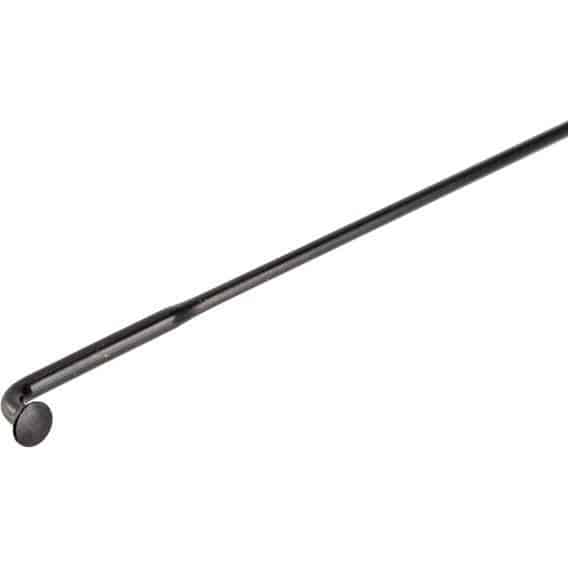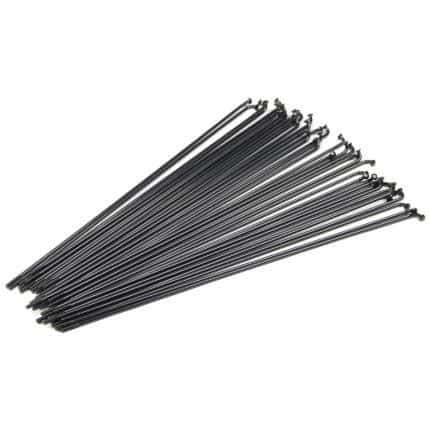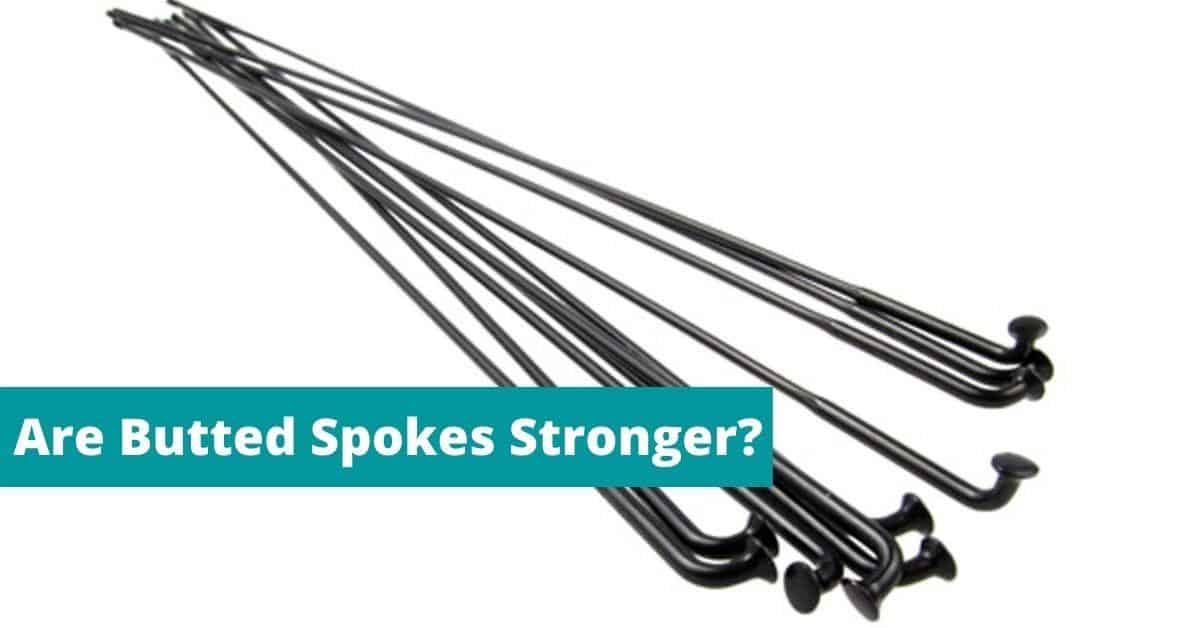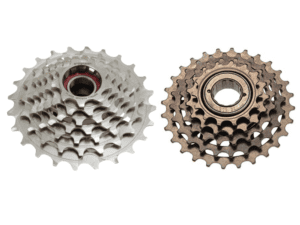Are Butted Spokes Stronger compared to other types of spokes?
Butted spokes are stronger than other bicycle spokes in various ways. For example, they are lighter than straight spokes because of the material used to make them.
Furthermore, they make bicycles more aerodynamic with a larger surface area profile at different angles of deflection.
They also have a reduced tendency to break due to their thicker shape.
Lastly, their increased strength is derived from less flexing and bending in that region that happens when you’re putting your full force on the pedals at high speeds in particular – something which would cause thinner spokes to break or bend much more quickly.
What Exactly Are Butted Spokes?

Butted spokes are a type of spoke that has a different thickness at the end and in the middle. This can affect the weight and strength of the spoke.
Butted spokes come in many different shapes. The most common ones are laced so that you can replace a broken one with a new one, and also because some people like their appearance.
Types of Butted Spokes
There are single-butted spokes, double-buttled spokes, and triple-butted spokes. Butted spokes have a minimum of two distinct diameters:
Single-butted spokes (SB) are larger at the elbow and smaller along with the remainder of their length, while double-butted spokes (DB) are larger at the elbow and therefore the thread and smaller within the middle section.
Straight spokes (most often used on the three-cross) are purely aesthetic. They don’t provide any increased strength or reduce weight in any way, shape, or form.
In fact, if you look closely at the photos of bicycles with “straight” spokes, you will see that they are almost always made of aluminum alloy.
“Butted” spokes on the other hand are made to take a higher load than straight spokes. When loaded from the inside, they flex less and absorb more shock (the load is concentrated on the outside at lower speeds).
Fitting into a wheel, they also act as a stress liner – taking increased stress in compression and bending.
Are Thicker Spokes Stronger?
Well, thicker spokes are thought to be stronger because they have a thicker cross-section, but a butted spoke is not necessarily stronger than a non-butted spoke.
The strength of the spokes depends on the thickness/cross-section of the wire and that has nothing to do with whether or not it’s been dented.
It’s also important to know that spokes are not all made from steel, some come in aluminum variants too.
The strength of spokes varies depending on their materials.
Steel is stronger than aluminum, for example, so we can say that butted spokes often have more strength than regular ones because they’re usually made from steel which has increased tensile yield stress (it takes more force to bend it).
On the other hand, butted spokes are also often heavier than regular ones because they’re thicker.
Thicker spokes mean that they have more material, and since weight is directly proportional to volume, they’ll be heavier too.
What Are The Strongest Spokes?

The strongest spokes are bladed spokes. A bladed spoke is light and has a large surface area. Bladed spokes are used on bicycles to support the weight of cargo or passengers, such as in a delivery bicycle.
These high-quality spokes help the wheels bear weight easily, and add to rim strength while also keeping the wheel stiffness thus making a stronger wheel.
Compared to straight-gauge spokes, aero spokes, and other shorter spokes, the bladed spokes offer the best choice for spokes on a bike that will be used to ferry loads/cargo with a longer fatigue life.
Simply put, they are heavy-duty application spokes.
How Do Butted Spokes Compare to Other Spokes?
Butted spokes are generally stronger than straight-gauge spokes. Butted spokes have a thicker end section where it is braced against the inside of the dropout, and they have a thinner middle part that goes into the hub.
The thickness difference strengthens the structure because both parts of the spoke are at different angles when compared to each other, which helps distribute stress better than straight-gauge or bladed spokes do. This increases their tensile strength.
How Much Weight Do Double-butted Spokes Save?
Double-butted spokes come with a lot of weight-saving benefits, weighing less than normal spokes.
In the end, they have thicker inner sections that are stronger and stiffer, while the thin middle section is lighter.
This helps decrease the overall weight of the spokes and any parts of a bicycle that use them.
With this said, double-butted spokes would not be as strong as bladed spokes on a road bike because there is too much weight in the support area for the spoke.
Final Words
In conclusion, butted spokes are lighter and stronger than straight spokes. But the weight difference depends on the diameter of the spoke.
Butted spokes are also stronger than straight spokes because they are wider.
However, it’s dependent on what you’re using them for and how much stress you put on them.
You need to weigh the strength benefits against weight differences, straight or butted backside, and compatibility with your bike frame to choose which spoke would work best for you.






The general consensus is that butted spokes are stronger than plain gauge but since i changed to plain gauge i have never broken a spoke. i have only busted a few in my tenure but i have curbed wheels significantly harder than the cases resulting in snapped butted spokes since then and have had no issues. i think that it’s an industry propaganda to get you to buy more costly parts because plain gauge wheels are stronger (i will concede the weight penalty)